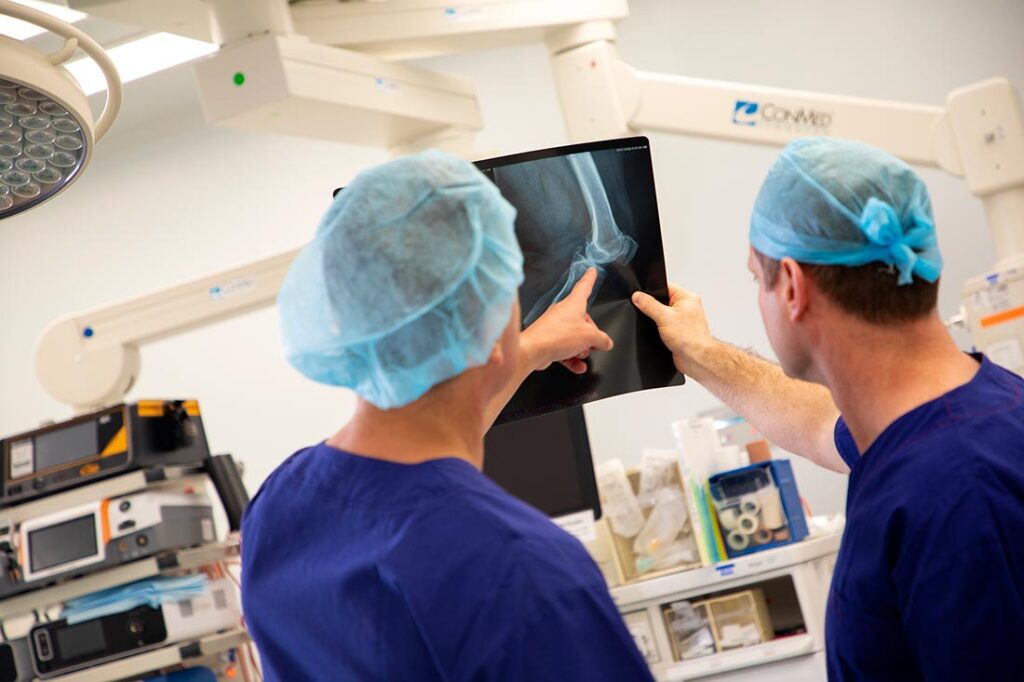
Hip replacement surgery has become increasingly common in Australia, particularly as the population ages. Despite this, patients in regional areas often encounter significant challenges during their recovery. Long travel distances for follow-up appointments, limited access to specialists, and uncertainty regarding progress can hinder effective post-operative care. To address these issues, the Fortius Institute for Musculoskeletal Research (FIMR), in collaboration with the Sunshine Coast Orthopaedic Group, launched the Panacea Pathway, a Concierge Service designed to enhance recovery for hip surgery patients.
This innovative initiative employs a digitally supported care pathway that allows nurse practitioners to deliver a surgeon-approved rapid recovery program directly to patients’ homes. The collaboration between FIMR and the University of the Sunshine Coast was facilitated by the Queensland Government’s Regional University Industry Collaboration (RUIC) program, which connects regional universities with small to medium enterprises to foster research partnerships across Queensland.
With the support of the University of the Sunshine Coast, the Sunshine Coast Orthopaedic Group gained access to critical research expertise and data capabilities. This partnership enabled the collection of a more comprehensive dataset than would have been feasible independently, a crucial step for training artificial intelligence tools on real-world clinical evidence.
Transforming Patient Care with Technology
The clinical care pathway developed from this collaboration integrates predictive analytics and AI-driven insights, allowing for remote monitoring of patient progress and early identification of potential risks. This approach not only alleviates the burden on patients but also contributes to improved recovery outcomes.
Professor Nick Ralph from the University of the Sunshine Coast expressed the rewarding nature of this project, stating, “Seeing our research directly improve patients’ lives has been incredibly rewarding, and this project is demonstrating our approach is leading to safer, better and faster recovery for patients undergoing major orthopaedic surgery.”
The positive reception of the at-home Nurse Concierge service has been notable, with over 3,000 clinical appointments conducted at patients’ homes. This initiative has significantly reduced travel time and minimized missed appointments. Patients have reported increased confidence in their recovery, attributing this to the continuity of care provided by their Nurse Concierge.
Dr. Stephanie Chaousis, Head of Digital Innovation at FIMR, highlighted the transformative potential of the project, stating, “This project has demonstrated how remote care and digital health tools can reimagine the patient journey. By combining clinical expertise with data-driven insights, we’re not just improving recovery outcomes – we’re establishing a new standard for musculoskeletal care.”
Future Expansion and Implications
The data gathered during this initiative has provided valuable insights to enhance care for joint replacement patients. Following the success of the hip surgery pilot, the Sunshine Coast Orthopaedic Group plans to extend the Panacea Pathway to include knee replacement procedures.
This model has the potential to scale across hospital networks, informing clinical guidelines and expanding its benefits to a broader Australian population through safer and more accessible recovery pathways. The implications of this innovative approach to telehealth may ultimately reshape the landscape of post-operative care, offering a promising solution to those in remote areas.
As healthcare continues to evolve, the integration of technology and personalized care is becoming increasingly vital. The Panacea Pathway exemplifies how collaboration, innovation, and a commitment to improving patient outcomes can create meaningful change in the healthcare system.







